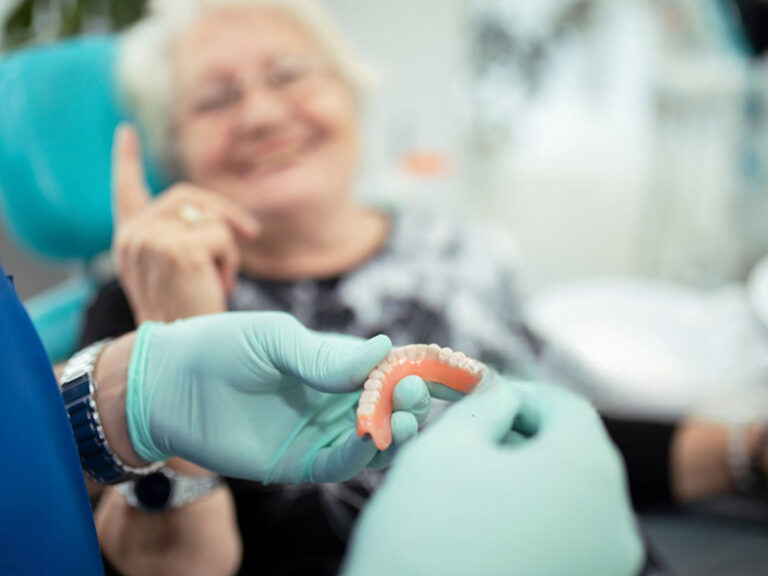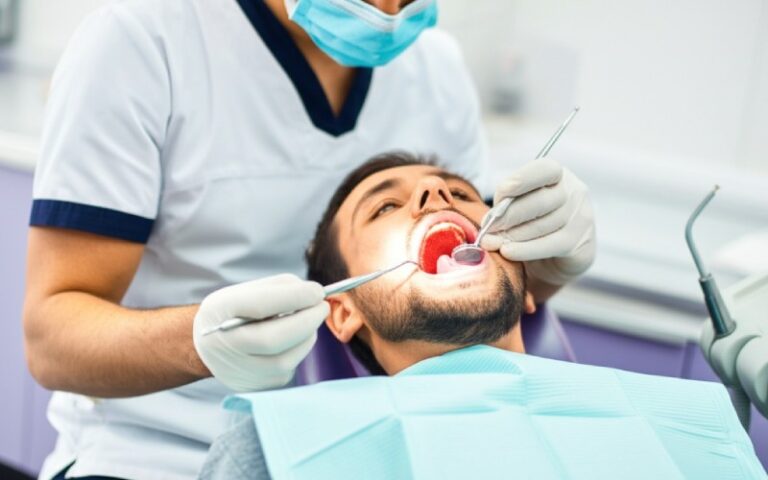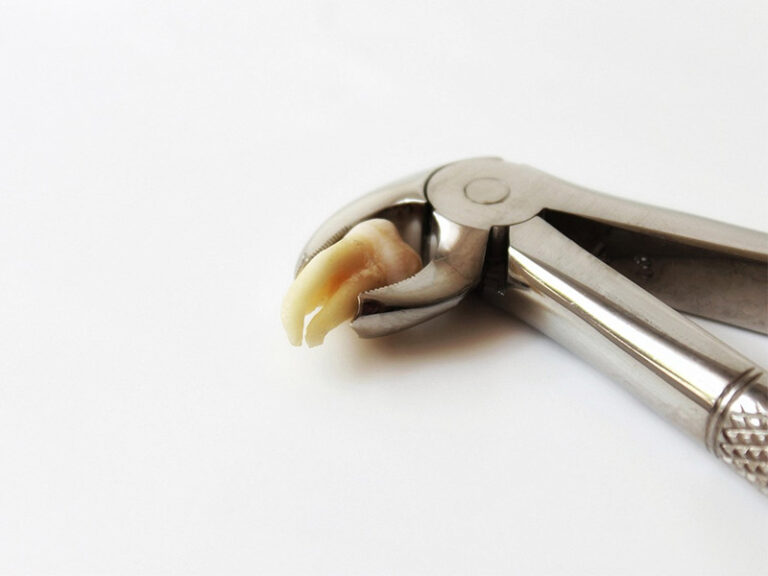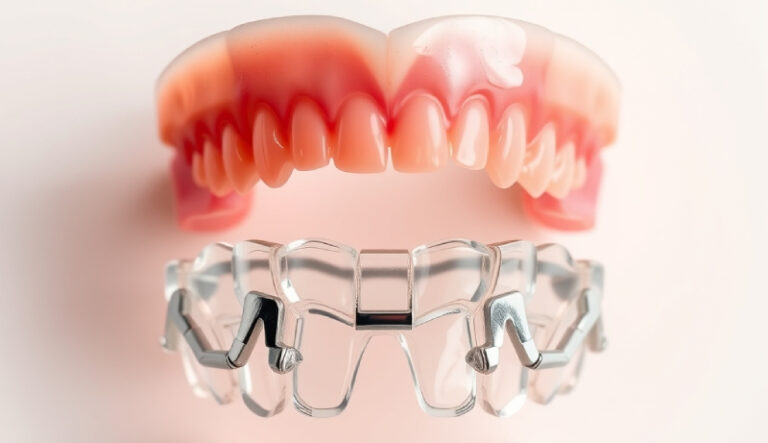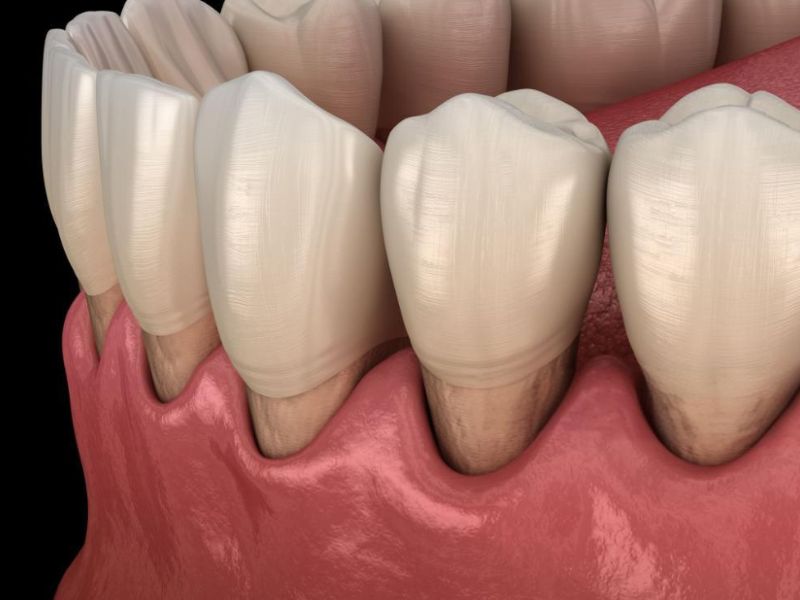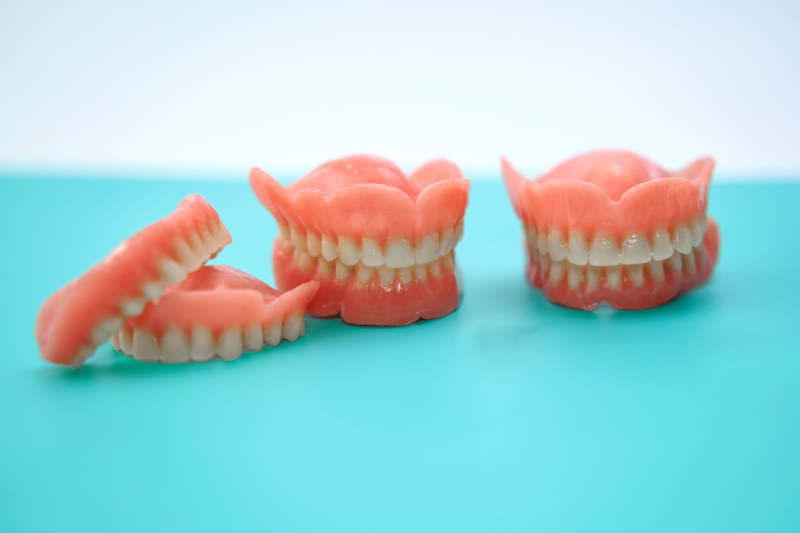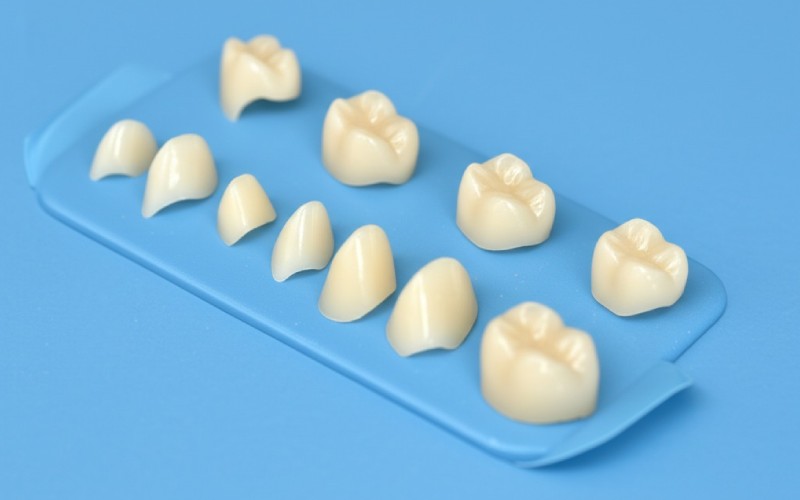
How Long Does Dental Anesthesia Last? Your Guide to Numbness After the Dentist
That weird, tingly feeling in your lips, tongue, or cheek after a dental visit—sometimes it sticks around way longer than you’d think. Maybe you just hopped out of the chair, trying to talk around a thick tongue, and now you’re asking yourself: “How long is this going to last? Is this normal? Can I grab lunch before my next Zoom call, or will I end up chewing my lip by mistake?” Trust me, you’re not the only one. Lots of people leave the dentist’s office with the same question: How long does the numb feeling stick around—and is there anything I can do about it?
Let’s look at what’s going on, what makes a difference, and the best ways to pass the time safely. I’ll also let you know when you should give your dentist a call, just in case something feels off. This is your go-to, easy-to-understand guide—no fancy medical terms required.
Table of Contents
What Is Dental Anesthesia and Why Do We Need It?
Let’s start simple. Dental anesthesia (sometimes called “freezing” or “numbing”) is what your dentist uses to make sure you don’t feel pain during things like fillings, crowns, tooth pulling, or deep cleanings.
How does it work? Picture your tooth and gums like a house. Your nerves are the wires that carry pain back to your brain. A local anesthetic is like a switch that shuts off those wires. While that switch is off, you don’t feel the dentist poking around in there—even if they drill or clean deep.
You probably got one of these:
- Lidocaine (the most common “numbing shot”)
- Articaine
- Mepivacaine
- Bupivacaine (used when they want the numbness to last longer)
Each one fades away at a different speed. That’s what brings us to the main question.
How Long Does Dental Numbing Usually Last?
Here’s the part you care about! Most times, your lips, tongue, and cheek stay numb longer than your actual tooth does. The kind of anesthetic, along with how fast your body handles it, both make a big difference.
Common Length of Dental Anesthetics
Take a look at this easy table for a quick idea:
| Anesthetic Agent | Tooth Numbness | Lips, Tongue, Cheek Numbness |
|---|---|---|
| Lidocaine (Xylocaine) | 60–90 minutes | 3–5 hours |
| Articaine (Septocaine) | 60–75 minutes | 3–4 hours |
| Mepivacaine (Carbocaine/Polocaine) | 20–40 min (plain) OR 60 min (with extra ingredient) | 2–3 hr (plain) OR 3–5 hr (with extra ingredient) |
| Bupivacaine (Marcaine) | 90–180 min | 4–9 hours |
| Prilocaine (Citanest) | 40–60 min (plain) OR 60–90 min (with extra ingredient) | 2–4 hr (plain) OR 3–6 hr (with extra ingredient) |
For most regular dental jobs like fillings or fixing a cavity, they use Lidocaine or Articaine with a little epinephrine, and you’ll probably be numb for about 3–5 hours in your mouth and an hour or so in your tooth.
What About Kids and Older People?
- Kids may get their feeling back a bit faster (2–4 hours).
- Older adults could stay numb a little longer, since their bodies break down medicine more slowly.
When Will I Be Back to Normal?
The numb feeling usually fades slowly—a little bit at a time, with some tingling as it goes away. If you got a big shot near the back of your mouth (like for your lower molars), your chin and lip might feel numb even longer than your top teeth.
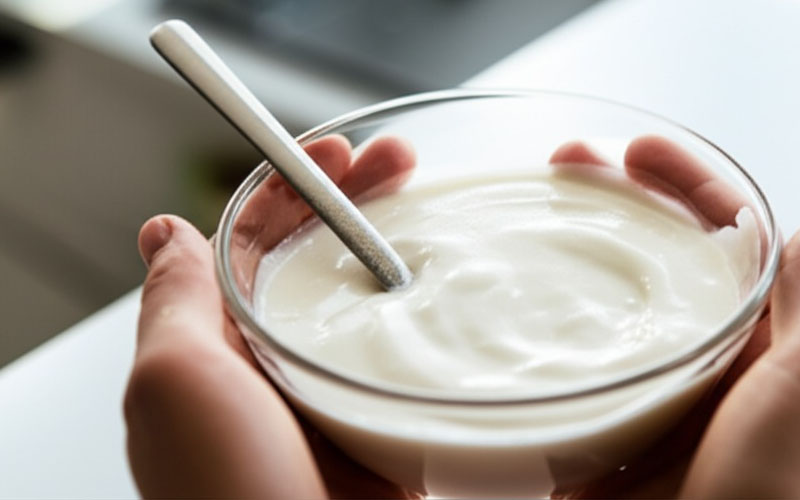
Why It Lasts Longer (or Shorter) for Some People
Here’s where it gets interesting. Why did your buddy get his lips back after two hours, but you’re still sipping soup five hours later? Several “behind-the-scenes” things come into play.
1. Type and Strength of Anesthetic
- Lidocaine and articaine—most common and fade at a pretty average speed.
- Bupivacaine is for times when your dentist thinks you’ll be sore after (like getting a tooth taken out). It could keep you numb almost all day—up to 9 hours!
2. With or Without a Special Ingredient (Like Epinephrine)
Think of this like a dam holding back a river. Epinephrine tightens up your blood flow to the area, so the numbing stuff sticks around longer and you bleed less.
- Anesthetic with epinephrine = Numbness lasts longer
- Anesthetic without it (just plain mepivacaine) = Numbness goes away quicker
3. Where (and How) You Got the Shot
Two main kinds:
- Nerve Blocks: These numb a bigger space, like half your bottom jaw. The numbness hangs around longer.
- Infiltration: Aims at a smaller spot—maybe just around an upper tooth. It wears off faster.
4. Your Own Body
Everyone is a little different! These things can change how long you stay numb:
- Age (kids and older folks are different)
- Size, weight, body build
- How healthy your liver or kidneys are
- Health problems (like diabetes or high blood pressure)
- Other medicines you take
Little tip: If you drink enough water and take care of your health, your body may handle the numb stuff better.
5. How Much and What Kind of Dental Work
A big or long appointment (think: root canal or a bunch of fillings) means your dentist might use more numbing stuff or pick one that lasts longer. Quick, simple fixes need less.
6. Special Situations
- Pregnant or breastfeeding? Most dental numbing is safe, but check with your dentist.
- Sensitive to epinephrine? Let your dentist know—they can pick something else.
- Worried about numbness? Say so! Dentists are used to helping with this kind of worry.
What Does It Feel Like When the Numbness Starts to Wear Off?
Most folks notice a pattern:
- First, tingling: That “pins-and-needles” feeling, like when your leg falls asleep and starts to wake up.
- Some people feel a little itchy or warm: Usually around the lips or cheeks.
- Then, feeling comes back: You can move your tongue normally. Talking sounds right again. Lips and face get back to normal.
- Sometimes, a little soreness or discomfort: Not unusual to feel a bit sore from the actual dental work when the numbness goes away.
- Once in a while, odd feelings: Feels like your lip is huge or your face is swollen. But it’s almost always more obvious to you than to anyone else.
If you had lots of work done: When numbness goes, you might start to feel some pain where the work happened. That’s very normal. Your dentist might tell you to take something simple like Tylenol, or give special instructions.

Staying Safe While You’re Still Numb
The toughest part? Trying not to hurt yourself by accident while you’re still frozen!
1. Don’t Bite!
It’s way too easy to chew your numb lip, cheek, or tongue without even feeling it—which hurts a lot later! Kids do this all the time. Remind everyone: “No chewing until the feeling is back.”
2. No Hot Food or Drinks
You might not feel heat, so you could burn your mouth on hot soup or coffee. Stick with cold or room-temp stuff for now.
3. Eat Carefully
If you really need to eat before you have full feeling back:
- Go for smoothies, applesauce, mashed potatoes, or yogurt.
- Chew on the side that wasn’t numbed.
- Take little bites and eat slow.
- Don’t rush.
4. Be Careful Brushing and Flossing
You won’t feel the brush as well, so go easy. No hard scrubbing close to where they worked.
5. Skip Intense Activities
Hold off on tough workouts, driving (unless you just got numbing—stronger sedation means you shouldn’t drive), or anything that takes sharp focus until you feel normal.
6. Don’t Mess with Your Mouth
Don’t poke your tongue, lips, or cheeks. It won’t help and could make things sore.
7. Ask About Reversal Shots
Some dentists use something called OraVerse (phentolamine mesylate). It may help your numb feeling wear off up to twice as fast. This can be really nice for kids or people who need to eat or talk soon. Not all dentists offer this, but it’s worth asking.
When to Call Your Dentist About Numbness
Usually, numbness wears off in just a few hours. But every now and then, it lasts longer. When should you worry?
When You Should Get Help
- If you’re still numb after 24 hours
- If you have bad pain as the numbness goes away (and painkillers don’t work)
- If you see signs of an allergic reaction: Rash, itchy skin, swelling by your mouth or tongue, or trouble breathing (call 911 if you can’t breathe).
- If you have signs of an infection: Fever, swelling that grows, pus, or bad redness
When Numbness Sticks Around: How Rare Is It?
Some folks worry, “What if my feeling never comes back?” Luckily, this is super rare. Lasting numbness (doctors call it paresthesia) after a dental shot only happens about 1 in 26,000 to 1 in 100,000 times. The nerve to your tongue is most likely to get hurt, but even then, most people heal up fine.
If you hit the 24-hour mark and feeling still hasn’t come back, call your dentist. They’ll look you over, answer your questions, and might send you to a nerve doctor if needed.
The Big Takeaways for Your Next Visit
Let’s sum it up. You’re all caught up now!
Main Things to Know
- Dental numbness usually goes away in 3–5 hours. How long depends on which medicine you got, the kind of work you had, and your own body.
- Lidocaine and articaine are the most common numbing medicines and keep your mouth numb a few hours.
- Bupivacaine can last almost nine hours—mainly for big tooth extractions.
- Kids lose the numbness a bit faster—but are more likely to chew up their lips, so keep an eye on them.
- Don’t chew, eat hot things, or poke your mouth when you’re numb!
- Ask about reversal shots like OraVerse if you want to speed things up.
- Call your dentist if you’re still numb after a day, have really bad pain, or see swelling or other problems.
Your Healthy Mouth Roadmap
Just follow these easy tips:
- Wait for all feeling to come back before eating or drinking anything hot
- Eat soft, cool foods if you have to eat
- Brush and floss with care
- Be careful about biting yourself (especially for kids)
- Tingling or slow-to-return feeling is almost always nothing to worry about
If you ever wonder—no matter how small the question—call the dental office. They’ve seen it all, and would much rather you ask.
Advice from Top Dental Groups
Groups like the American Dental Association (ADA) and Mayo Clinic say: dental numbness is usually easy to predict, temporary, and better than feeling pain at the dentist! Your experience may not be just like your friend’s, but a little patience and care always work out.
Got More Questions?
Here are a few super common ones:
Can I make dental numbness go away faster?
Not really, but gently moving your jaw or talking won’t hurt. Warm washcloths on your face can sometimes help a bit. Stay away from weird internet tricks like biting lemons!
When can I eat?
As soon as you feel everything again. If you can feel your cheek and swallow right, you’re good. For big jobs, ask your dentist.
Is it weird if only part of my mouth is numb?
Not at all! Your lips or tongue could “wake up” before your gums, or the other way around. The feeling usually fades a little at a time.
What should I do if my child is numb?
Watch them closely. Kids love to chew on numb lips just out of curiosity. Gently remind them not to chew or poke at their mouths.
Final Thoughts: Dental Care You Can Trust
You got through another dental visit, and soon your mouth will be back to normal. Take it easy. If you have more questions, always ask your dentist or their team—there are no silly questions about your health.
If you have dental visits coming up and want to spend less time numb, or if something doesn’t feel right, talk to your dentist. There are ways (like reversal shots or different numbing medicines) to make things smoother for next time.
A healthy, pain-free smile is worth a little time spent numb. Now you know what to expect—and how to handle it like a pro.

